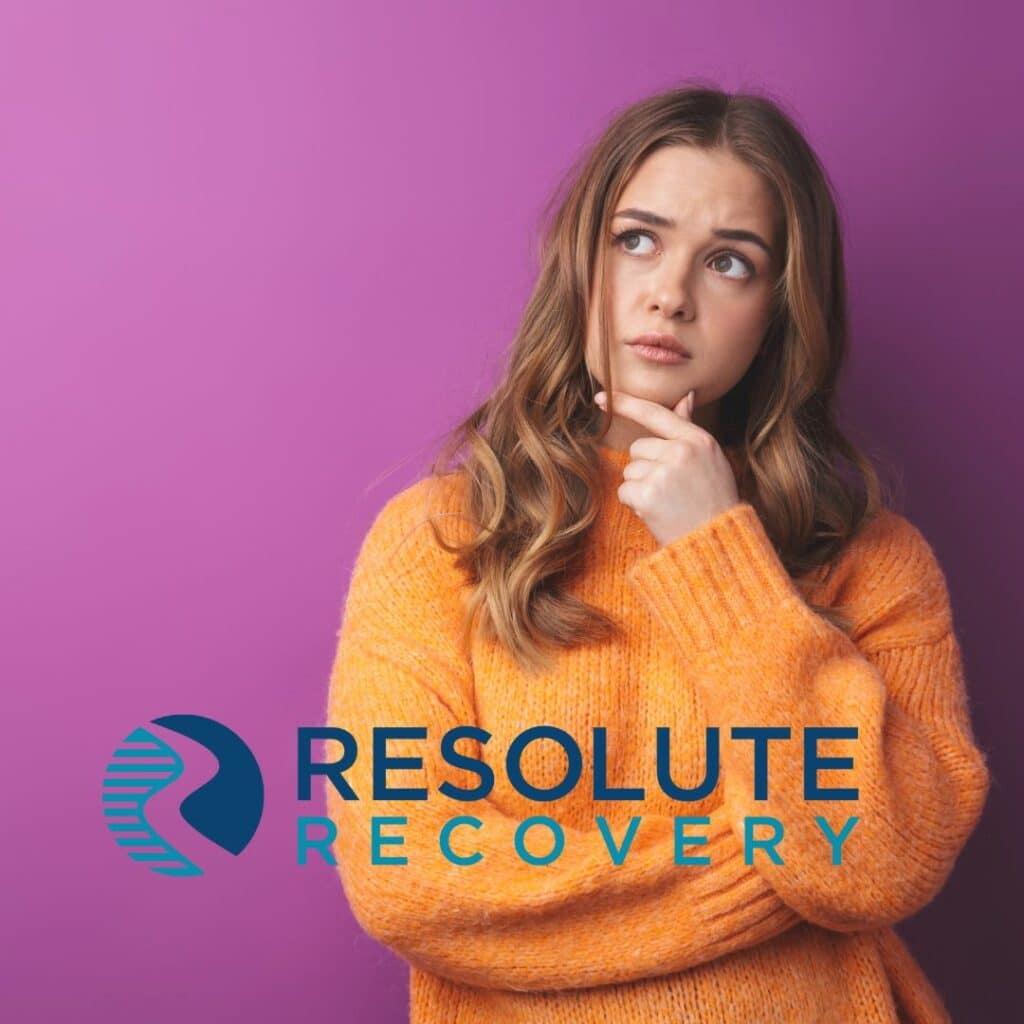The Personal and Professional Intersection of Recovery Disclosure
Recovery from substance use disorder doesn’t exist in isolation – it weaves through every aspect of your life, including your professional world. The workplace presents unique challenges and opportunities as you navigate your recovery journey.
Work Performance During Recovery
- Enhanced focus and mental clarity lead to improved productivity
- Better time management and consistent attendance
- Stronger decision-making abilities
- Increased reliability in team projects
- Greater emotional stability in workplace interactions
Daily Workplace Challenges
- Navigating work-related social events without alcohol
- Managing stress without previous coping mechanisms
- Addressing gaps in employment history
- Rebuilding professional relationships
- Maintaining boundaries while staying connected with colleagues
The early stages of recovery can significantly impact your work life. You might notice changes in your energy levels, concentration patterns, and social interactions. Some days bring crystal-clear focus, while others require additional effort to maintain professional momentum.
Many professionals in recovery face social isolation at work. Happy hours, team celebrations, and networking events often center around alcohol, creating potential triggers and feelings of exclusion. This separation can affect workplace relationships and career advancement opportunities.
However, it’s essential to remember that stigma in addiction still exists, which can complicate these dynamics further. The intersection of recovery and professional life requires careful navigation. Understanding your rights, available resources, and potential workplace accommodations helps create a sustainable balance between your recovery needs and career goals. If you’re seeking support or need more information on this topic, don’t hesitate to reach out through our contact page.
Benefits and Risks of Telling Your Boss About Addiction Recovery

Disclosing your recovery journey to your employer presents both opportunities and challenges that require careful consideration.
Potential Benefits:
- Access to workplace accommodations for medical appointments
- Flexibility in scheduling for support group meetings
- Protection under the Americans with Disabilities Act
- Reduced stress from hiding your recovery journey
- Authentic relationships with colleagues
- Potential mentorship opportunities with others in recovery
Common Risks:
- Unconscious bias affecting promotion opportunities
- Workplace gossip and social isolation
- Misconceptions about recovery stability
- Changed dynamics with supervisors
- Potential impact on job security
- Unwanted scrutiny of work performance
The decision to disclose depends heavily on your workplace culture and relationship with management. A supportive environment might offer resources like flexible schedules or counseling services. Some companies actively participate in recovery-friendly workplace initiatives, making disclosure more beneficial.
Your personal readiness plays a crucial role. Consider:
- Your stability in recovery
- Professional relationships with your supervisor
- Company policies regarding substance use
- Available workplace support systems
- Your career goals and trajectory
A confidential conversation with HR can help you understand company policies and available accommodations before making your decision. Some employees choose partial disclosure, sharing only necessary information to access specific benefits or accommodations.
Strategies for Disclosing Recovery Status to Your Employer

Preparing for a disclosure conversation requires careful planning and professional communication. Focus your discussion on specific work-related aspects rather than personal details. You might say: “I want to discuss some health-related changes that have impacted my work performance and share the positive steps I’m taking.”
Choosing Your Confidant
- Direct Supervisor: Best when you have an established, trusting relationship
- HR Representative: Ideal for formal accommodations and legal protections
- Employee Assistance Program (EAP) Counselor: Can help strategize your disclosure approach
Professional Communication Tips
- Schedule a private meeting in advance
- Prepare key talking points about your recovery journey
- Focus on your commitment to work performance
- Bring documentation of treatment progress if applicable
Peer support networks can strengthen your disclosure strategy. Recovery coaches and support groups offer valuable insights from others who’ve navigated workplace disclosure. These networks provide:
- Practice sessions for disclosure conversations
- Strategies from lived experience
- Emotional support during the process
- Professional guidance on timing
Consider joining a peer coaching program before disclosure. These programs help you develop confidence and communication skills while connecting you with others who understand your journey. Your coach can help you craft a disclosure plan that aligns with your professional goals and recovery needs.
Additionally, exploring resources such as peer support networks can provide further assistance. These platforms not only offer emotional support but also connect you with individuals who have successfully navigated similar situations, thereby enriching your recovery journey and enhancing your disclosure strategy.
Leveraging Employee Assistance Programs (EAP) and Workplace Supported Recovery (WSR) Programs
Employee Assistance Programs offer confidential support services tailored to your recovery journey. These programs connect you with licensed counselors, treatment referrals, and resources without compromising your privacy at work. Many EAPs provide:
- 24/7 crisis hotline access
- Short-term counseling sessions
- Treatment facility recommendations
- Legal and financial guidance
- Family support services
In fact, the crucial role of therapy in recovery, as highlighted by Resolute Recovery, emphasizes how therapy is a cornerstone of addiction treatment and mental health.
Workplace Supported Recovery programs take support a step further by creating structured environments that actively promote sustained recovery. WSR initiatives typically include:
- Designated recovery coaches
- Peer support networks
- Regular check-ins with HR representatives
- Modified work schedules when needed
- Return-to-work coordination
Your workplace might also provide access to medication-assisted treatment options through healthcare benefits. Some companies now stock naloxone in first-aid kits and train staff in its administration – a life-saving measure for overdose prevention.
These programs demonstrate your employer’s commitment to supporting employees in recovery. You can access most services discreetly through dedicated hotlines or online portals, maintaining your privacy while getting the support you need.
Creating a Culture That Reduces Stigma Around Substance Use at Work
Workplace stigma around substance use creates barriers for employees seeking help. Organizations can implement specific strategies to build a supportive environment:
1. Comprehensive Training Programs
- Equip supervisors with knowledge about substance use disorders
- Develop empathy-focused leadership skills
- Train teams to recognize signs of substance use challenges
- Practice appropriate responses and support strategies
2. Open Communication Channels
- Create safe spaces for discussing mental health
- Host regular wellness check-ins
- Establish anonymous feedback systems
- Share recovery success stories (with permission)
3. Policy Updates
- Replace punitive approaches with supportive measures
- Include substance use in diversity and inclusion initiatives
- Implement clear, non-discriminatory workplace guidelines
- Provide flexible scheduling for treatment appointments
A stigma-free workplace culture empowers employees to seek help without fear. Organizations benefit from increased productivity, improved morale, and reduced turnover when they prioritize understanding and support for substance use challenges.
Next Steps if You’re Considering Disclosure – Resources & Support
Before making your decision about workplace disclosure, you can access several confidential resources:
- HR Consultation: Schedule a private meeting with your HR representative to discuss workplace policies and protections without revealing personal details
- EAP Services: Contact your Employee Assistance Program for free, confidential counseling and guidance specific to workplace substance use concerns
- Legal Resources: Connect with employment law specialists who understand ADA protections and workplace rights regarding substance use recovery
If you prefer to keep your recovery private, these external support options can help:
- Licensed therapists specializing in workplace challenges during recovery
- Recovery support groups focused on professional development
- 24/7 confidential hotlines staffed by recovery specialists
- Career coaches experienced in substance use recovery
You can also document your thoughts and concerns in a personal recovery journal to help clarify your disclosure decision. This practice helps you track your progress and identify specific workplace situations where additional support might benefit you.
Encouragement Toward Empowered Recovery Decisions at Work
Your journey in recovery is uniquely yours – and so is your decision about workplace disclosure. You have the right to maintain privacy while accessing support services that can enhance your professional success.
Know Your Rights:
- Protection under the Americans with Disabilities Act (ADA)
- Access to reasonable workplace accommodations
- Freedom from discrimination based on recovery status
- Right to medical privacy and confidentiality
The path to integrating recovery into your work life doesn’t require choosing between complete disclosure and total privacy. Many professionals find success in a balanced approach, sharing information selectively as trust builds and needs arise.
Consider These Empowering Steps:
- Connect with recovery-friendly workplace networks
- Document your progress and achievements
- Build relationships with supportive colleagues
- Set clear boundaries that work for you
You’re not alone in navigating these decisions. Our expert team at Resolute Recovery understands the complexities of balancing sobriety and work life. We’re here to help you create a strategy that aligns with your recovery goals and professional aspirations.
If you’re grappling with understanding why we get addicted, or if you’re seeking specific resources like PPC drug treatment or local sober activities (local sober activities), we have a wealth of information at your disposal.
Moreover, if you’re struggling with cocaine recovery, our insights on the role of community in cocaine recovery might provide the support you need.
Ready to explore your options? Contact us for confidential guidance on workplace disclosure and recovery support. Your success in both recovery and your career matters to us.




